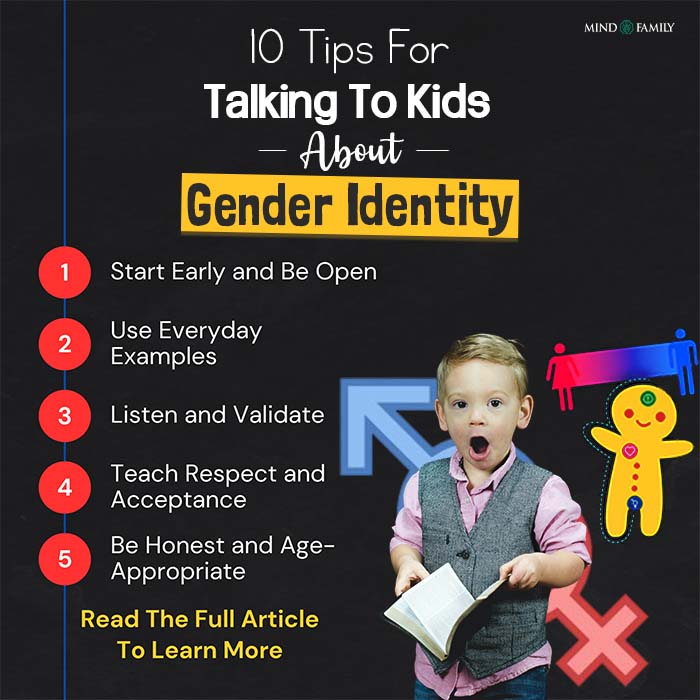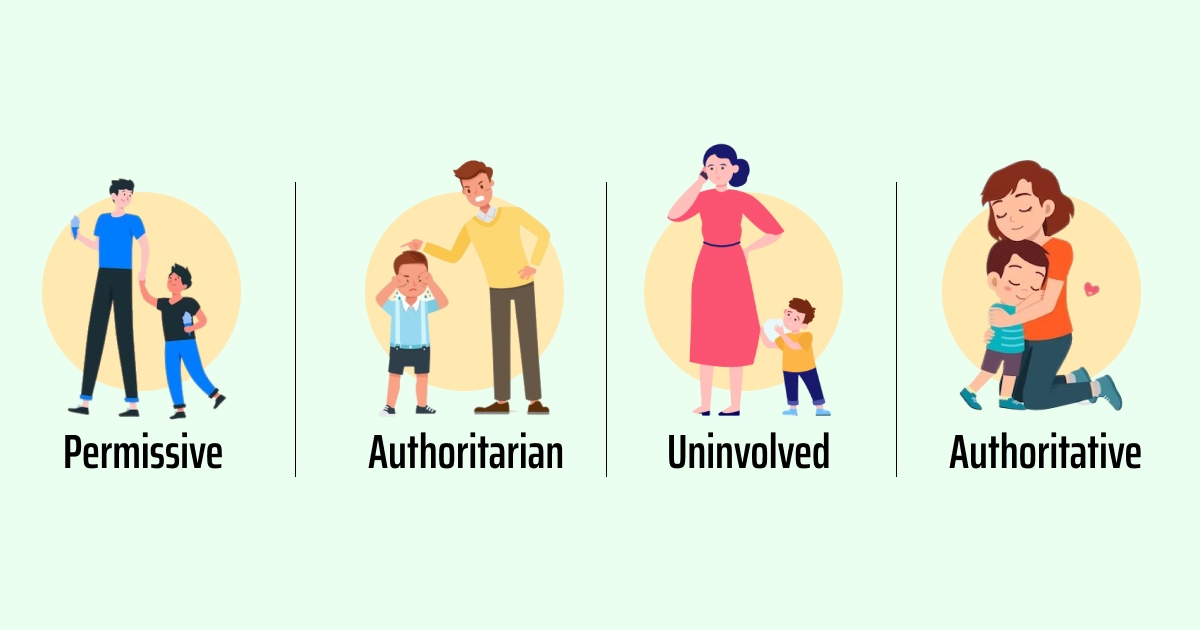Talking to kids about gender might seem like an uneasy conversation at first, but it’s essential. As misinformation about gender is getting more and more widespread, it’s crucial to help kids understand the truth.
The recent pushbacks against the LGBTQ community continue with the ‘Don’t Say Gay’ Bill forcing many children and parents to avoid the topic altogether. Proponents of the bill say that the sexuality of children is being influenced and the bill will give more power to parents.
But this cannot be further from the truth. According to an interview in Times Magazine, the gender debate has been hijacked by politicians to further their agenda says Melanie Willingham-Jaggers, executive director of GLSEN.
This is why it is all the more important that you talk to your kids about gender now before someone else with agendas does first.
In this article, we’ll share easy ways to talk to kids about gender. We’ll explain why it’s important and how to do it sufficiently. We’ll also give tips on answering their questions and making them feel comfortable.
By learning together, we can help make the world a kinder place for everyone, no matter how they identify. Let’s get started!
Defining The Spectrum of ‘Gender’ For Kids
You might have heard the term “gender identity” more often lately. It’s a concept that has always been around. Simply put, everyone has a gender identity – it’s how you feel about being a boy, a girl, or something else.
As kids grow up, they start to figure out their gender identity, usually around age 3. For most people, their gender identity matches what the doctor said when they were born, like being a boy or a girl.
But for some people, like those who are transgender or nonbinary, their gender identity doesn’t match what was said at birth. It’s important to know that gender identity isn’t just about being a boy or a girl. Some people feel like both, neither, or something in between. This is called being nonbinary.
For example, some people are born as boys and feel like boys, while others are born as girls and feel like girls. But some people might feel like both, or neither, or something in between. That’s okay!
So, when we talk about gender identity, we’re talking about how someone feels inside, and it’s unique for every person.
Remember when you are talking to kids about gender everyone’s feelings about their gender should be respected, whether they match their birth assignment or not.
Read More: What Are Family Dynamics? Is Your Family Dynamics Uplifting or Weighing You Down?
Importance of Talking To Kids About Gender
Talking to kids about gender is incredibly important for several reasons.
Research shows that many transgender individuals start questioning their gender identity as early as age 10. If kids don’t have a safe space to talk about their feelings and questions about gender, they might feel confused or alone.
LGBTQ students often face bullying, with rates as high as 70%. This bullying can lead to serious mental health issues, and LGBTQ youth are up to 14 times more likely to attempt suicide compared to heterosexual youth. Discrimination based on gender identity only makes these challenges worse.
However, there’s good news too. Studies have found that when children have supportive adults who accept and affirm their gender identity, their risk of mental health issues decreases significantly. For example, having just one supportive adult can reduce the risk of self-harm by 40%.
So how to talk to kids about gender? Let’s take a look!
Read More: 5 Key Indicators of Children’s Mental Health Issues You Need To Be Aware Of!
10 Effective Ways You Can Talk About Gender

When it comes to talking to kids about gender, it’s essential to approach the conversation with care and openness.
Here are ten effective ways you can discuss gender with children, supported by insights from experts in child development and psychology.
1. Start Early and Be Open:
Talk to kids about gender early on, when kids are young and curious. Being open means being available to answer any questions they might have. This helps them feel comfortable talking to you about anything related to gender. ‘
Dr. Diane Ehrensaft, a psychologist who studies child development, suggests that starting these conversations early lays the groundwork for ongoing communication about gender as kids grow.
2. Use Everyday Examples:
Use simple examples from everyday life to explain gender to kids.
For example, you can talk about how some people like different colors, just like how some people feel like boys and some feel like girls.
Dr. Laura Erickson-Schroth, a psychiatrist, suggests that when talking to kids about gender-familiar concepts helps kids understand them better.
3. Listen and Validate:
Listen carefully to your child’s questions and feelings about gender without judging them. Let them know you understand and respect their experiences. Dr. Johanna Olson-Kennedy, a pediatrician, emphasizes the importance of validating children’s feelings to help them feel accepted and understood.
4. Teach Respect and Acceptance:
Teach kids to treat people of all genders with kindness and respect. Help them understand that everyone deserves to be accepted for who they are. Dr. Stephen Russell, a sociologist, believes that teaching respect and acceptance from a young age can help create a more inclusive society.
5. Be Honest and Age-Appropriate:
Be honest when talking about gender with kids, but keep it simple and age-appropriate. You don’t need to give them all the details at once, but make sure they understand the basics. Dr. Lindsay Kite, an activist and scholar, suggests being truthful while considering what children can understand at their age.
6. Encourage Exploration:
Encourage kids to explore their own feelings about gender and express themselves authentically. Let them know it’s okay to be who they are and support them in discovering their true selves.
Dr. Ilana Sherer, a child psychologist, believes that fostering exploration helps children develop a healthy sense of self. So when you are talking to kids about gender remember to encourage them to try out new things as well.
7. Challenge Gender Stereotypes:
Challenge traditional ideas about what boys and girls should like or do. Show kids that it’s okay for boys to like “girly” things and girls to like “boyish” things.
Dr. Rachel Levine, a pediatrician and public health official, suggests exposing children to diverse gender roles to broaden their understanding. She suggests that you need to talk to kids about gender to remove the harmful stereotypes they may have developed.
8. Lead by Example:
Set a good example by treating people of all genders with kindness and respect. Show kids that you value diversity and believe in treating everyone equally. Dr. Kimberlé Crenshaw, a civil rights advocate, emphasizes the importance of modeling positive behavior for children.
9. Create Safe Spaces:
Create an environment where kids feel comfortable talking about gender without fear of judgment. Let them know they can come to you with any questions or concerns they may have. Dr. Alexis Chavez, a clinical psychologist, believes that providing a safe space encourages open communication.
10. Stay Informed and Educated:
Stay informed about gender issues so you can provide accurate information to kids. Keep up-to-date with resources and research to ensure you’re equipped to support them effectively. Dr. Jack Turban, a psychiatrist and researcher, suggests staying educated to better assist children in understanding gender.
By following these strategies and insights from experts, you can engage in meaningful conversations about gender with children in a way that fosters understanding and acceptance. Together, we can help create a more inclusive and compassionate world for future generations.
Read More: The Impact of Social Media on Children: 5 Damaging Effects!
A Word From Mind Family
As we come to the end of our talk about how to discuss gender with kids, let’s think about why it matters. Having these talks helps make sure everyone feels okay and accepted, no matter who they are. It’s important to be open and kind when we talk about gender.
Remember, these conversations aren’t always easy, but they’re really important. By being honest and respectful, we can help kids understand and accept each other better. Let’s keep learning and talking about gender so we can make the world a nicer place for everyone, no matter how they feel inside.
Frequently Asked Questions (FAQs)
1. What does ‘Gender’ mean?
Gender refers to whether someone feels like a boy, a girl, or something else. It’s about how people see themselves on the inside and how they express that to the world.
2. What is the importance of talking to kids about gender?
Talking to kids about gender helps them understand and respect people’s differences. It also creates a safe space for kids to express themselves and reduces the risk of bullying and mental health issues.
3. What are some ways to talk to kids about gender?
Start early, use everyday examples, listen, teach respect, be honest, encourage exploration, challenge stereotypes, lead by example, create safe spaces, and stay informed. These methods help kids understand gender in a supportive and inclusive way.


















Leave a Reply